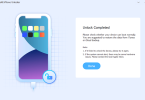The internet is becoming more complicated all the time. Twenty years ago, almost no one cared about their online privacy and personal data protection. But nowadays, everything we have and know is gathering dust on social media and different websites. New terms, government blocks, hackers, and online threats don’t make our life any easier.
But a VPN does! We will tell you everything about this internet miracle so that you can use the newfound knowledge to your advantage. With this awareness, you will be familiar with every VPN feature and pick the right, most effective and fast VPN for you.

Contents
Definition of a VPN
What is a VPN in the first place? The three letters stand for “virtual private network”:
- “Virtual” because it is based on real-life networks;
- “Private” because only authorized users have access to it;
- “Network” because a VPN allows data transfer between two or more devices.
Firstly, VPNs started out as a local solution for corporate needs — big companies were trying to make a safe connection between staff members to secure essential data. Imagine a massive number of devices connected to different internet points but operating in a single local network.
But now, almost everyone uses VPN. With this fact, an obvious question comes to mind.
What Can a VPN Do and Why Do I Need One?
With VPN functions, you can do multiple things online:
- Bypass regional restrictions. Some countries block certain websites or platforms due to different court orders, company decisions, etc. With a VPN, you can easily avoid this;
- Secure your personal data. A VPN provides you with an encrypted internet connection and makes things harder for fishing sites, malware, and net criminals;
- Make your internet “avatar” anonymous. No one will ever know what sites you visited or what things you downloaded if you don’t want them to.
VPN Work Principles
So how does VPN work exactly? With a usual internet connection, every user has their own IP (internet protocol) address — a unique numeric identifier. This makes you “visible” to other users and software: what you bought online, what things you searched for, and other activities you did on the internet can be tracked. But a VPN provides you with a new private network address.
A VPN consists of two parts: a local net (Remote access service server or RAS) and an external network (usually, regular internet). First, your device connects to RAS with special authorization. This information is checked, secured, and encrypted with things called protocols — systems of data transfer rules.
This “camouflage” is possible with several encryption protocols:
- Open VPN — used for most VPN programs. It has an open-source code, which makes it easier to find some vulnerabilities and fix them;
- L2TP — has a tunneling protocol and is used for many networks like IP, ATM, and X.25;
- IKEv2 — primarily used for smartphones. Pros — high speed and automatic reconnection.
For example, if you are located in the US and need to visit a blocked site, you can connect to a VPN. The network will think the new access request comes from another user with a different address. In most cases, these addresses are from other countries.
Now, connected via a VPN, your access request can be from Canada, France, or any region on Earth!
Here is a link to a premium VPN for Canada.
How to Choose the Right VPN Software
Almost every user sees a VPN promo once in a while. There are so many of them! How do you go about picking one if all of them have the same function?
The first thing you need to know is that there are free VPN services available on the net. Most of them have limited functions and other unpleasant “features”:
- Slow speed, sometimes extremely so;
- Bugs and errors: sometimes, blocked websites stay that way even if you are connected to VPN;
- Ads. A lot of them;
- Free VPN services can even sell your data to other people and companies
Such things happen for known reasons — developers need to earn something for their work. But a free VPN is good for getting familiar with such software and its functions. When you get a premium version, you will hardly feel a difference. Surfing through the web stays the same but safer. With paid software, you can even connect several devices, so all your internet activity will be protected. Here’s a comprehensive list of VPN services comparison — pick one!
More from us: How to Use Artificial Intelligence in Your Business
Let’s Revise
To conclude, we will gather the most essential points about VPN services:
- A VPN hides IP address, makes you invisible online, protects your data from criminals and malware, and bypasses regional restrictions;
- A VPN functions via remote servers, which connect users to the local network, serving as an external “knot” between the device and the internet.
A free VPN is a way to become familiar with its function, but it is always better to get a premium subscription.






